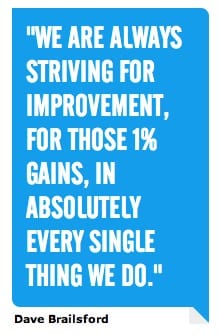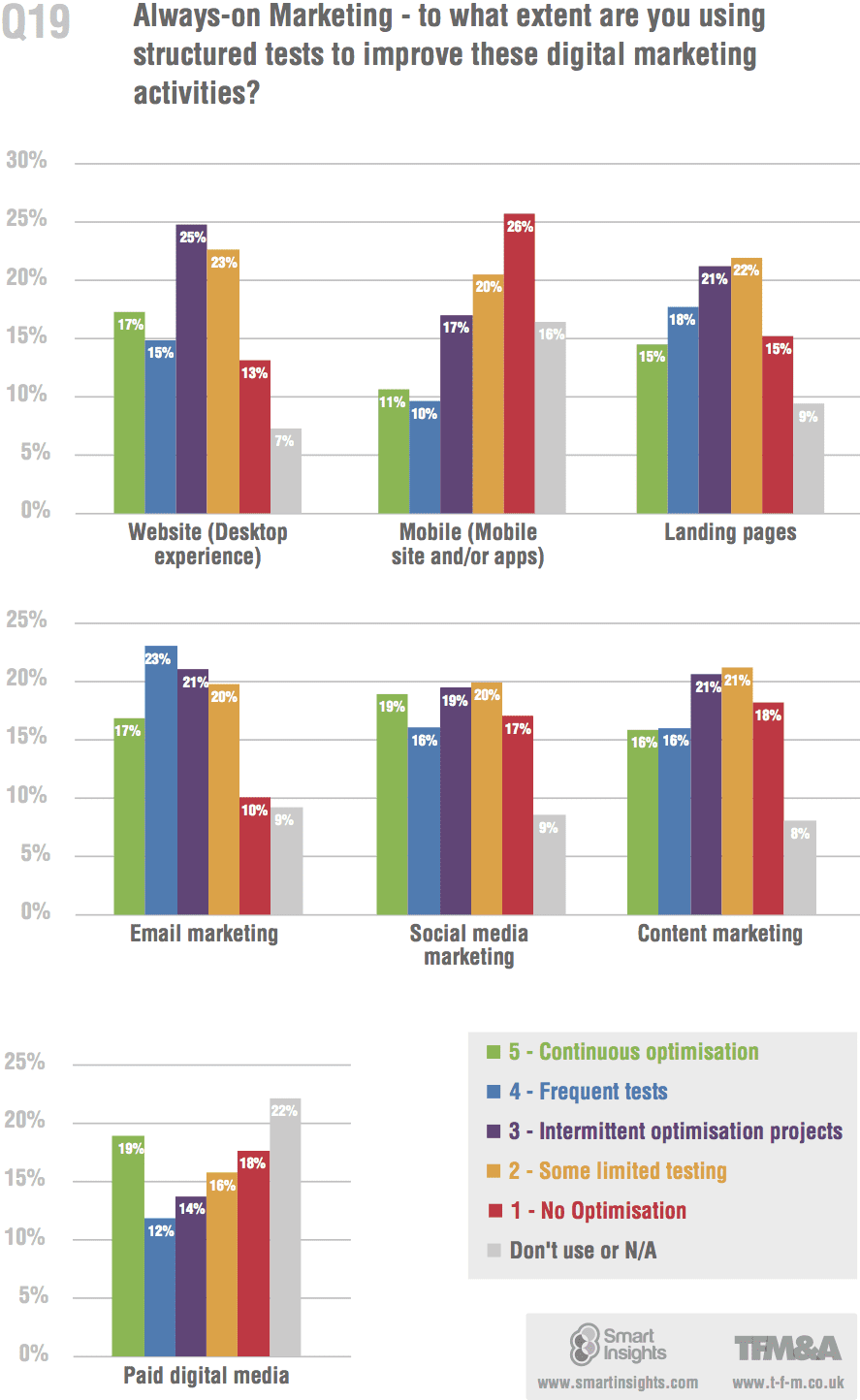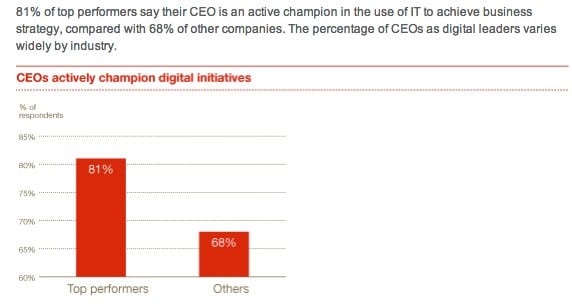Applying Dave Brailsford’s philosophy of excellence to improve results from digital marketing
 The recent announcement that Sir Dave Brailsford has stepped down as British Cycling performance director to concentrate on Sky team management reminded me of his famous philosophy for improving performance from his team and how it can be applied to digital marketing.
The recent announcement that Sir Dave Brailsford has stepped down as British Cycling performance director to concentrate on Sky team management reminded me of his famous philosophy for improving performance from his team and how it can be applied to digital marketing.
British Cycling describe his marginal gains philosophy as perhaps his greatest British Cycling legacy. The technique is encapsulated by this quote:
“If you broke down everything you could think of that goes into riding a bike, and then improved it by one percent, you will get a significant increase when you put them all together,”
Implementing his marginal gains approach initially led to success in Chris Hoy’s gold in the kilometre time-trial and Bradley Wiggins’ gold in the individual pursuit in Athens. More recently, multiple Olympic gold medals and the Tour de France victories by Wiggins and Froome again showed the technique in action.

With results like this, unsurprisingly this philosophy has been discussed around how it can be applied in the business world too, so I thought it would be interesting to step through how this can be applied to digital marketing.
First, it’s worth exploring more how Brailsford explains how the approach is applied to cycling. In this 2010 article on the aggregation of marginal gains. He explains it with this example:
"It means taking the 1% from everything you do; finding a 1% margin for improvement in everything you do. That’s what we try to do from the mechanics upwards.
If a mechanic sticks a tyre on, and someone comes along and says it could be done better, it’s not an insult - it’s because we are always striving for improvement, for those 1% gains, in absolutely every single thing we do."
He also gives the example of Nicole Cooke winning road gold in Beijing:
“The skinsuit did not win Cooke the gold medal. The tyres did not win her the gold medal. Nor did her cautious negotiation of the final corner. But taken together, alongside her training and racing programme, the support from her team-mates, and her attention to many other small details, it all added up to a significant advantage - a winning advantage”.
Applying the aggregation of marginal gains approach to digital marketing
So, how can we apply this approach to digital marketing? You can see that the mindset of marginal gains is closely linked to the mindset of data-driven marketing and improving online sales through conversion rate optimisation. Many companies are already following this approach at level 4 and 5 of what we called Always-on marketing in our research on Managing Digital channels from earlier in the year:

To create this “Always-on” philosophy of testing and improvements these are the actions that I have seen working with companies who are applying the marginal gains approach to digital marketing.
- 1. Adopt the optimisation mindset. Optimisation is a way of thinking in the same way that British Cycling and Sky call their approach a philosophy. Optimisation requires a dedicated process and resource. It is difficult to make it part of existing processes or roles.
- 2. Gain senior support for resourcing and optimisation initiative. In all companies, a senior manager who champions optimisation is needed. They can help ring fence the resource and time needed for continuous optimisation. Without this other campaign activities will tend to always take precedence.This research on supporting digital initiatives from PwC shows that leading organisations have a champion for major digital initiatives.

- 3. Use specialist resource. Brailsford brought in many performance specialists such as nutritionists and psychologist Steve Phillips. In the digital marketing world, although vendors of AB/multivariate testing services will say that it is easy to setup a test and this is true, designing the test and evaluating the results at the right level of statistical confidence is not. Specialist CRO consultants and agencies can help here.
- 4. Identify and prioritise your performance drivers across customer touchpoints. Optimisation is much broader than testing some key landing pages. Every page template on the site can have an impact as can media through remarketing and email marketing, even more with targeting and personalisation. Persuasion needs to be optimised across the whole customer journey.
- 5. Benchmark performance using the right KPIs. Improvement needs a baseline with the right KPIs selected to improve performance. In Digital marketing this isn’t just overall conversion rate since that has many limitations as a KPI. You need to look at overall performance measures such as revenue or goal value per visit by segment and micro or step conversion.
6. Prioritise and schedule the right digital optimisation initiatives. The chart above shows many areas of optimisation, so you need to identify the quick wins which will have the biggest impact and then set targets for improvement, as part of a 90 day planning programme for example.
Here are some common digital marketing optimization initiatives, which would you add?
Conversion rate optimisation. Removing inefficiencies in customer journeys and optimising different page template types using AB and multivariate testing.
- Optimising visibility in the SERPs with search marketing. This includes optimisation of AdWords creative and targeting and using Google Webmaster Tools to improve the clickthrough rate for key search terms and pages.
- Email marketing optimisation. Testing subject lines and email creative - particularly for automated emails that are used to boost conversion or retention.
- Social media optimisation. Defining the best type of content and timing using SMO.
- Media optimisation. Improving the efficiency of display ad investments across publishers and social networks by refining bidding and creative, for example using Real-time bidding services or AdWords display network optimisation.
So, there are many optimisation techniques that can be applied IF their importance is recognised and they are resourced accordingly.
A final point to bear in mind is that many of these techniques centre on boosting efficiency rather than communications effectiveness. Often, bigger gains are possible through improvements to the good old 4Ps of the online marketing mix, that’s Product, Price and Place (Promotion is well covered by optimisation). Developing a desirable, engaging brand is also part of this mix. I’m reminded of an AB test I was involved with for a credit card provider where it was all about the rate on the card rather than the page layout, creative and copy. The product managers needed to look at that to get the improvements needed.











